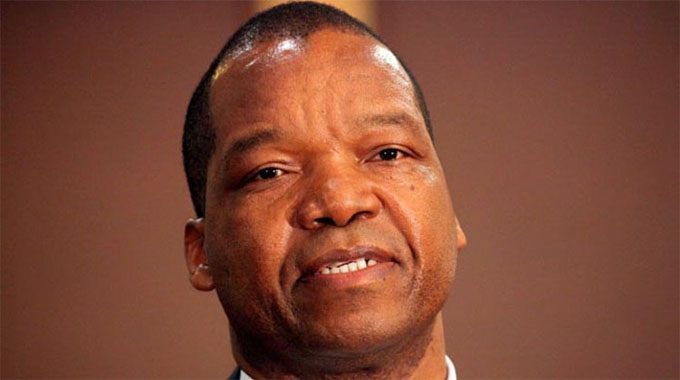
The Sunday Mail

Golden Sibanda
Reserve Bank of Zimbabwe (RBZ) will deploy various monetary tools at its disposal to stem out rampant “market indiscipline” that it believes is driving price increases.
Market indiscipline, the central bank said, is at the heart of price instability that is largely influenced by volatile parallel market exchange rates.
Some retailers, including those accessing foreign currency from the auction market, are understood to be pricing goods and services using parallel market exchange rates.
This has also given the same companies a lot of liquidity to either bid higher for forex on the auction system or offload it on the parallel market, which ultimately causes exchange rate volatility.
RBZ Governor Dr John Mangudya told The Sunday Mail Business that monetary authorities will relentlessly defend the domestic currency.
“We are monitoring the situation; we cannot relax thinking things will work by themselves – no! We need to continue to tighten, we are going to tighten the monetary policy to ensure that we bring order to the economy,” Dr Mangudya said.
He said there were a lot of positive signs after recent interventions to address market distortions, adding success will, however, be measured against internal and external dynamics.
“The best way of measuring the success of fiscal consolidation and a tight monetary policy is stability in prices for goods and services. Number two, right now we have prices being affected not only by monetary issues,” he said.
“So, going forward, we need to track the month-on-month inflation so that we see whether that month-on-month inflation is due to exogenous factors or due to internal factors.
“Right now, we know that in March (2022) it was due to external factors. We are now saying we need to ensure we take measures to tighten money supply and also to ensure fiscal consolidation is enhanced.”
Volatile exchange rates have recently been stoking inflationary pressures and threatening to undo the huge gains achieved last year.
Following the introduction of the foreign currency auction system on June 23, 2020, the exchange rate remained largely stable while inflation dipped.
After peaking at a post-dollarisation high of 837,5 percent in 2020, inflation plummeted to a two-year low of 50,3 percent by June last year.
But prices have been creeping up since late 2021 through to the current period, while the Russia-Ukraine has begun driving global inflation.
The parallel market exchange rate, which has significant pass-through effects on prices, has shifted from US$1:$220 to about US$1:$280.
However, major successes have been recorded in fiscal consolidation, which turned perennial budget deficits into surpluses, while unnecessary use of the central bank overdraft window to finance budget programmes was discontinued.
Russia’s military operation in Ukraine is driving global commodity prices, including oil, gas and fertiliser, which has driven record inflation across the globe.
The RBZ has been aggressive in mopping up liquidity in order to stabilise the local currency.
In the 2022 Monetary Policy Statement (MPS), the apex bank cut the quarterly money supply growth target to 7,5 percent from 10 percent.
This entailed further revision from the previous quarterly money supply (liquidity growth) target of 20 percent.
The policy rate – the key lending rate of the central bank against which commercial banks benchmark lending rates – was adjusted to 60 percent to discourage speculative borrowing.
In addition, the central bank also left the Medium Term Accommodation (MBA) Facility, funding for critical industrial activities, at 40 percent to prevent currency volatility. Dr Mangudya said despite headwinds facing the local currency, it has helped drive economic growth and promote domestic economic activity.
“The velocity of local money is higher than the velocity (rate of circulation of a currency) of US dollar, because when you have local dollar, you want to spend it quickly and when you have the US dollar you want to keep it as a store of value.”
He, however, acknowledged that reduced allocations at the bank’s weekly auction market for foreign currency had also contributed to some of the pressures in the market.
Some businesses could now mobilise forex from their US-dollar sales while banks were also now lending some of their holdings in hard currency.
The auction system, which has disbursed more than US$2 billion since inception in June 2020, has been credited for reducing inflation, which closed the year just over 60 percent, and driving local industrial productivity.



